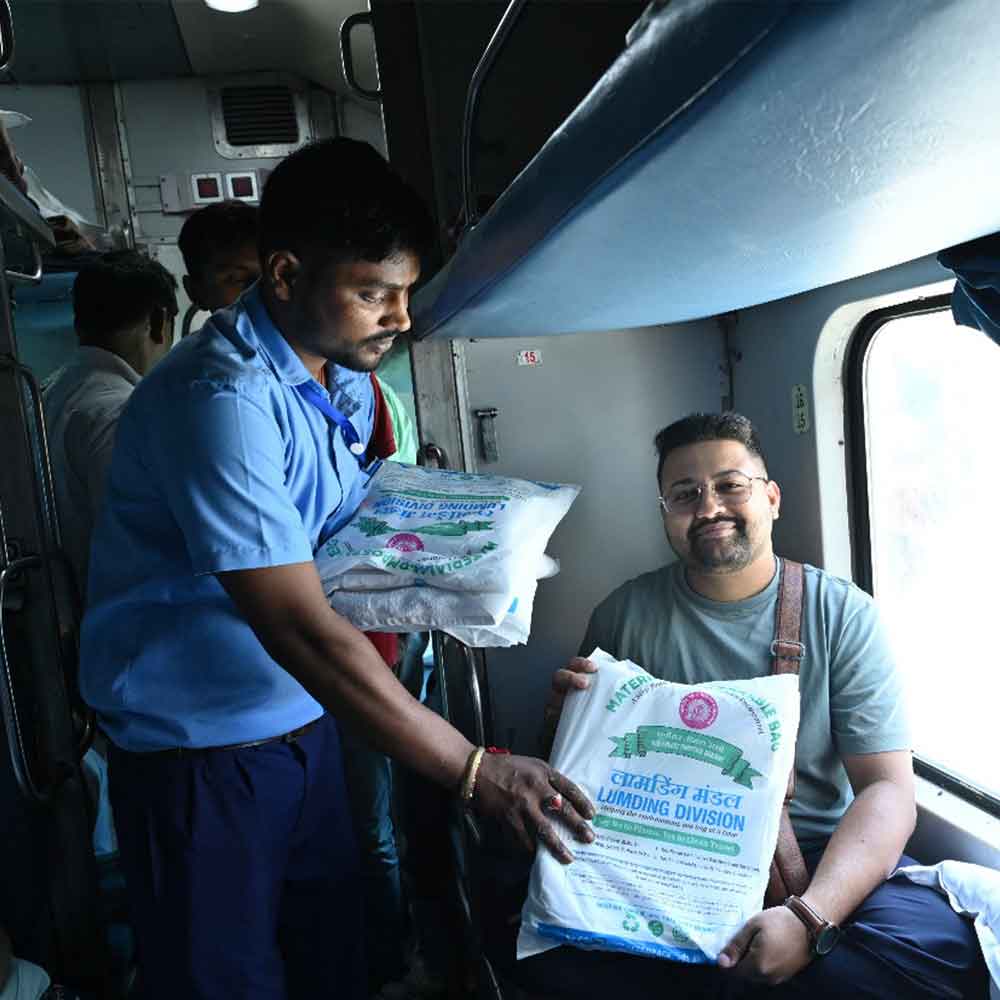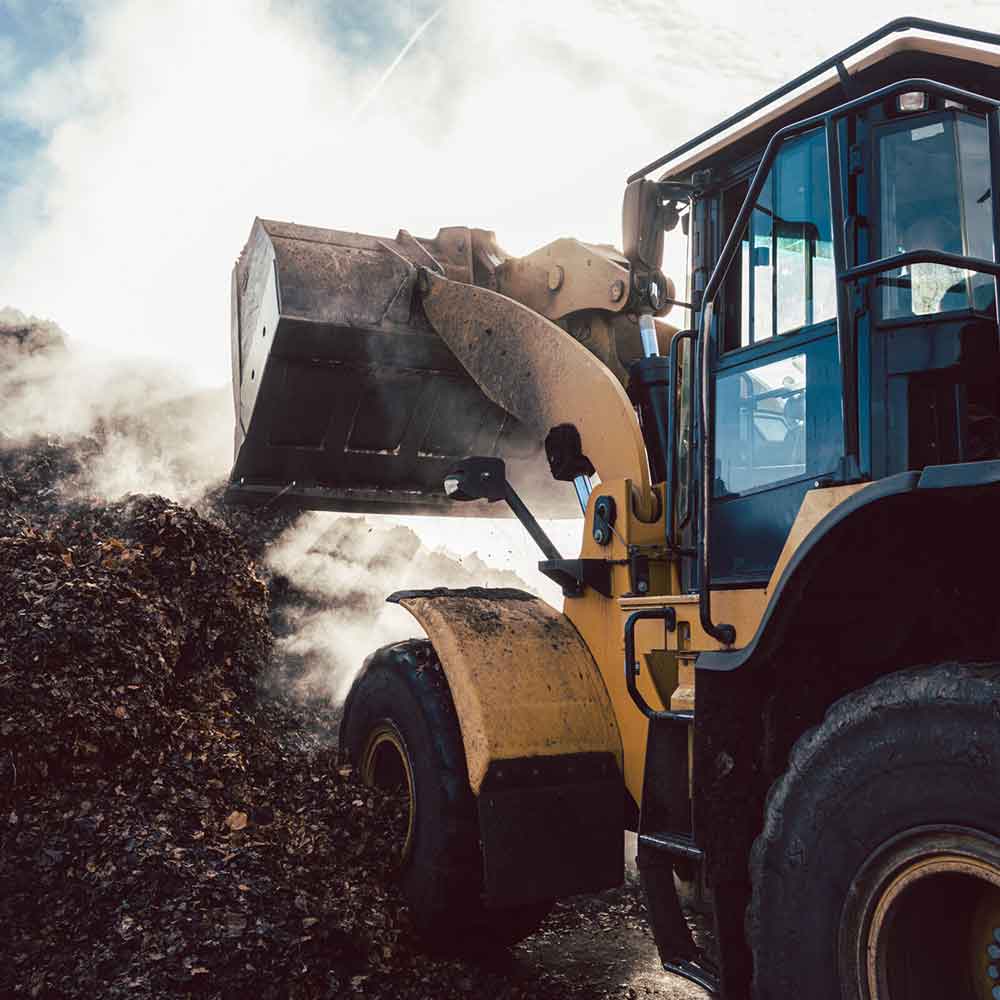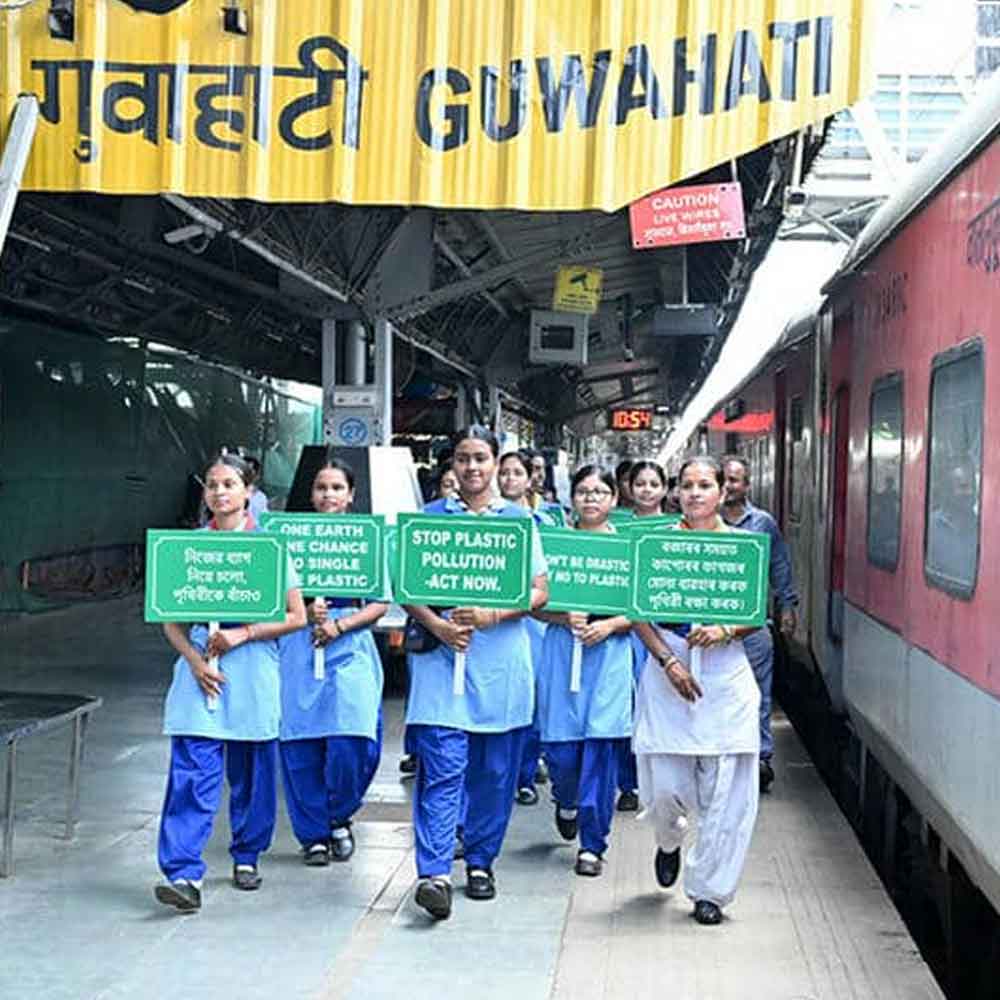India's first railway zone to switch to biodegradable plastic on trains is the Northeast Frontier Railway (NFR). On August 15 this year, India’s 79th Independence Day, the NFR launched a trial program to distribute linen to passengers using a biodegradable bag. The Indian Institute of Technology Guwahati (IIT-G) created the bioplastic that complies with ISO17088 and is utilised as the packaging material. NFR's General Manager, Chetan Kumar Shrivastava, and an IIT-G team under the direction of Professor Vimal Katiyar led the initiative's launch.

40,000 bioplastic bags were distributed among 25 trains starting from the railway zone's terminals in Arunachal Pradesh, Assam, Bengal, Bihar, Tripura, and West Bengal. The project was in line with the NFR's (India's easternmost railway zone) goal of implementing green measures for its transportation network. In addition to improving passenger convenience, the program helps save natural resources, lessen the carbon footprint, and reduce landfill garbage.

In order to recycle biodegradable garbage and reprocess used bedroll bags into new ones, an inoculum generating plant at Kamakhya (a railway station close to the NFR's headquarters in Guwahati) has played a vital role. This has further reduced plastic pollution.
In order to ensure a consistent supply and enhanced performance of onboard sanitation systems, NFR is the first zone of the Indian Railways to centralise the production and quality assurance of Bio-toilet inoculums. Bio-toilets are a major part of railway's mission to promote eco-friendly and hygienic sanitation systems in trains. The Anaerobic Microbial Inoculums (AMI), a specialised bacterial solution that aids in the breakdown of human waste and promotes cleaner and more sustainable onboard sanitation, are the system's central component.

2,000 litres can be produced daily at the new plant. Inoculums are now manufactured by NFR at a significantly cheaper cost than before thanks to in-house production, which also guarantees DRDO certified quality. Weekly monitoring and quality control of the AMI used in coaches are guaranteed by a specialised in-house testing lab at KYQ, which helps to further preserve reliability.
With 35,000 litres of inoculums sent to all NFR depots in March 2025, this effort has already demonstrated results, greatly enhancing the maintenance and operation of Bio-toilets. The action represents a major turning point in improving station and train cleanliness, providing travellers with a more pleasurable, hygienic, and pleasant journey.

Together with NFR's environmentally friendly initiatives, the partnership with IIT-Guwahati represents a workable and expandable strategy for more environmentally responsible railway operations. The zone has implemented solar energy, rapid railway electrification, rainwater harvesting, quick watering systems, automatic coach washing plants, bio-toilets, a mechanised cleaning system, composting of solid waste, afforestation, and Al-based intrusion detection systems to protect elephants and others are just a few of the steps that NFR has put in place. NFR is establishing new benchmarks for railway hygiene through proactive cleaning initiatives, such as automated systems at stations and creative in-house sanitation solutions onboard.
Image source: TripuraNewsLive, TheHillsTimes